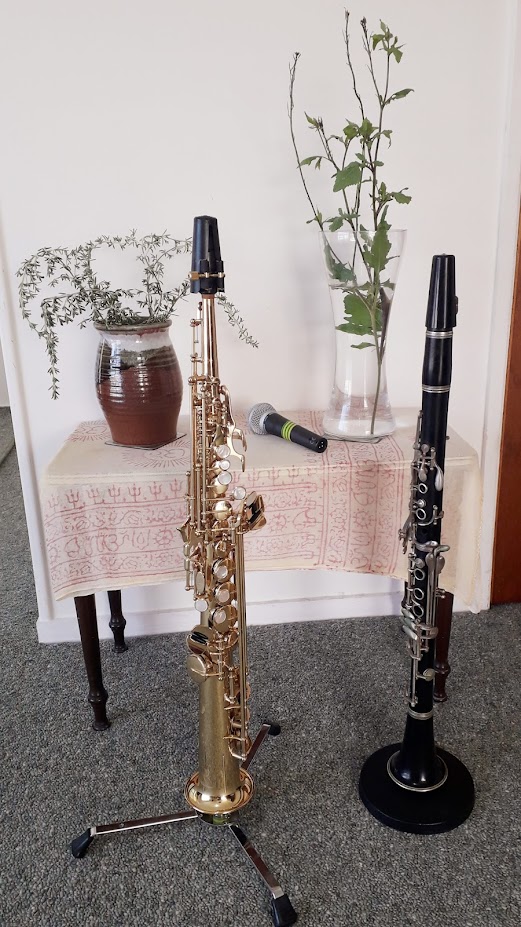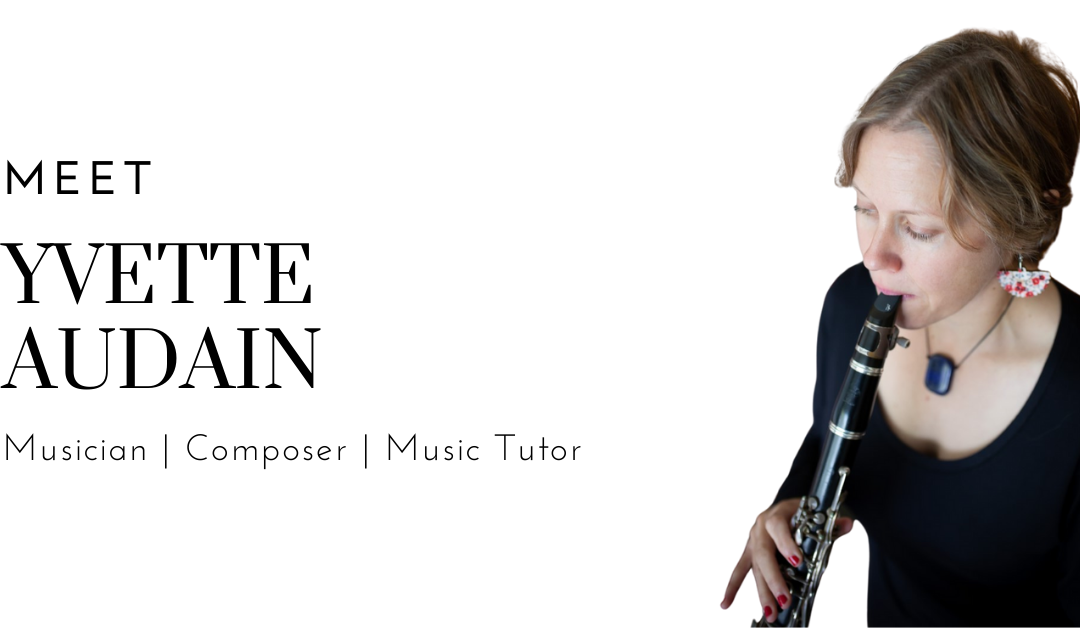Yvette Audain will be performing at Creative Coromandel’s Mix and Mingle at The Monkey House next week. We took the opportunity to have a catch up with this enormously talented musician.
Who is Yvette Audain?
I’ve been in Whitianga just over six years now. I play a variety of instruments although it seems like it’s never enough! I’ll quickly press the rundown button of what my instruments are. I play and teach clarinet, saxophone, flute, singing, piano, ukulele, recorder, Irish whistle. I’m also a composer and an arranger; I do orchestration as well. Plus, I can teach things like music theory.

What’s in store for the Creative Coromandel Mix and Mingle?
I’m going to be offering part of my recently conceived solo project, which is just me, my voice, my clarinet, my saxophone, and some backing tracks. It’s a project that I started about midway, three quarters of the way through last year. It started getting a bit of traction in local venues over the summer, in that break between Delta and Omicron. Honestly, just dodged those two ‘raindrops’ and got in there. I feel so lucky to have had that opportunity.
Where did your musical journey begin?
In Auckland, where I was born and raised.
I’ve been playing music for most of my life. I started at about the age of five, when I first got my fingers on a keyboard. Recorder came later, about nine, and everything else just basically followed on from that.
How do you deal with the challenges of commissioned pieces?
Every commission has its own challenges, just like every student is different. Therein lies the learning experience! Sometimes the deadline can provide a stimulating challenge, sometimes a particular description in the brief, or a particular technical limitation that the performers and commissioners might have. Sometimes the parameters in the brief within which to work can make it quite easy, rather than having too many options – like paralysis by analysis.
Who would you say your most significant musical influences are?
Let’s focus on the project that I’m presenting at the Creative Coromandel Mix and Mingle, or should we do ‘in general’, with the music I listen to? I might just stick to what has influenced my playing even though that leaves out a significant element of who I am as a musician and human. People would probably be quite surprised to find out some of the stuff that I do listen to if they’ve stereotyped me into the ‘classical’ box or the ‘trained musician’ box. I’ll stay focused on some of the influence that I might take as a musician. I do a lot of early jazz stuff; classic jazz stuff in my solo project. I guess I take some similar influences to the Whitianga Dixieland Band, the early jazz clarinet players, Duke Ellington’s guys like Barney Bigard; Johnny Hodges; people like that.
Tell us about the Better Times project.
It was the year before last, I think; it’s kind of hard to pinpoint what happened at what time during these last couple of crazy years. I think it was the first phase of the pandemic, before Delta or Omicron; yeah, I’m pretty sure it was the first wave in 2020. That’s when people were first starting to need to feel like better times were on the way.
Have you heard of Janis Ian? She’s an American singer-songwriter who’s been around since the 60s and 70s. Her breakthrough hit was At Seventeen. She wrote this song, a simple ditty, called Better Times Will Come. She released it as a demo, and I think, a lead sheet. She basically put it out to the world for free, which was incredibly generous, saying, “here you go guys – please record your interpretations of that and send it to me and I’m going to publish it as part of the Better Times project”. Everybody could hear this tune, played and interpreted different ways as a little ray of hope out into the world.
The Whitianga Dixieland Band got in touch with me about the project. I did an arrangement; they did the recording. There were some teething problems, in terms of keys and stuff like that – it was too high for the singer so it was taken down. That involved a bit of hurried tweaking, and the perfectionist in me was sort of listening to it going – “that wasn’t what I originally wrote”; I had to just kind of cut the corners. But the vibe was still there – it’s cheerful and it’s joyful – and it’s trad jazz which always sounds like sunshine. Janis was apparently quite happy with it, too.
Have you got any work that you’re particularly proud of?
Oh, man! That’s like when I am asked “what’s your favourite instrument to play?” as well. I feel like whichever pieces I mention, the other pieces are going to cry. The stuff I’ve written for myself to play like on the album, Grooves Unspoken, which I released well over a decade ago now. Right here [waves CD at webcam], me playing my own stuff with a variety of collaborators. And if I wasn’t proud of any of that, I wouldn’t have released it.
What are you working on right now?
I’ve recently received quite a big commission. I’m still pinching myself because I’m going through a bit of impostor syndrome about it wondering if they’ve picked the right person. There’s a pianist in Masterton called Sharon Cawston, who came across me and my work through a Facebook page about the attempted saving of Radio New Zealand Concert when it first came under threat just over two years ago. She looked me up and heard some of my music. It was like, “oh, well, she kind of likes it. That’s cool”. And next thing you know, I’m being included in this project.
She’s doing a CD compilation of freshly commissioned new work by a bunch of New Zealand composers, including myself, but also including a lot of people who taught me at university! Also current rising stars, big names in the New Zealand composition world, who have already done great things despite their relatively tender years. And I’m just kind of sitting there pinching myself going “I haven’t written anything since my Tuia commemoration commission in 2019”. That might not seem like a long time, but I guess in the life of a composer, it kind of is. I’m only writing a short piano piece, but there’s going to be some interludes for taonga pūoro as well. It will add a wonderful flavour of diversity and inclusiveness.
We all have to pick a landscape to be inspired by. How can I not be inspired by the geothermal activity in this beautiful region? I was playing at The Lost Spring recently so it’s right there in my mind. I’m quite excited and I’ve been doing little bits of piano experimentation, taking little notes most days, and doing journaling and stuff – just dipping my toe into it because it’s not due for quite some time yet.

